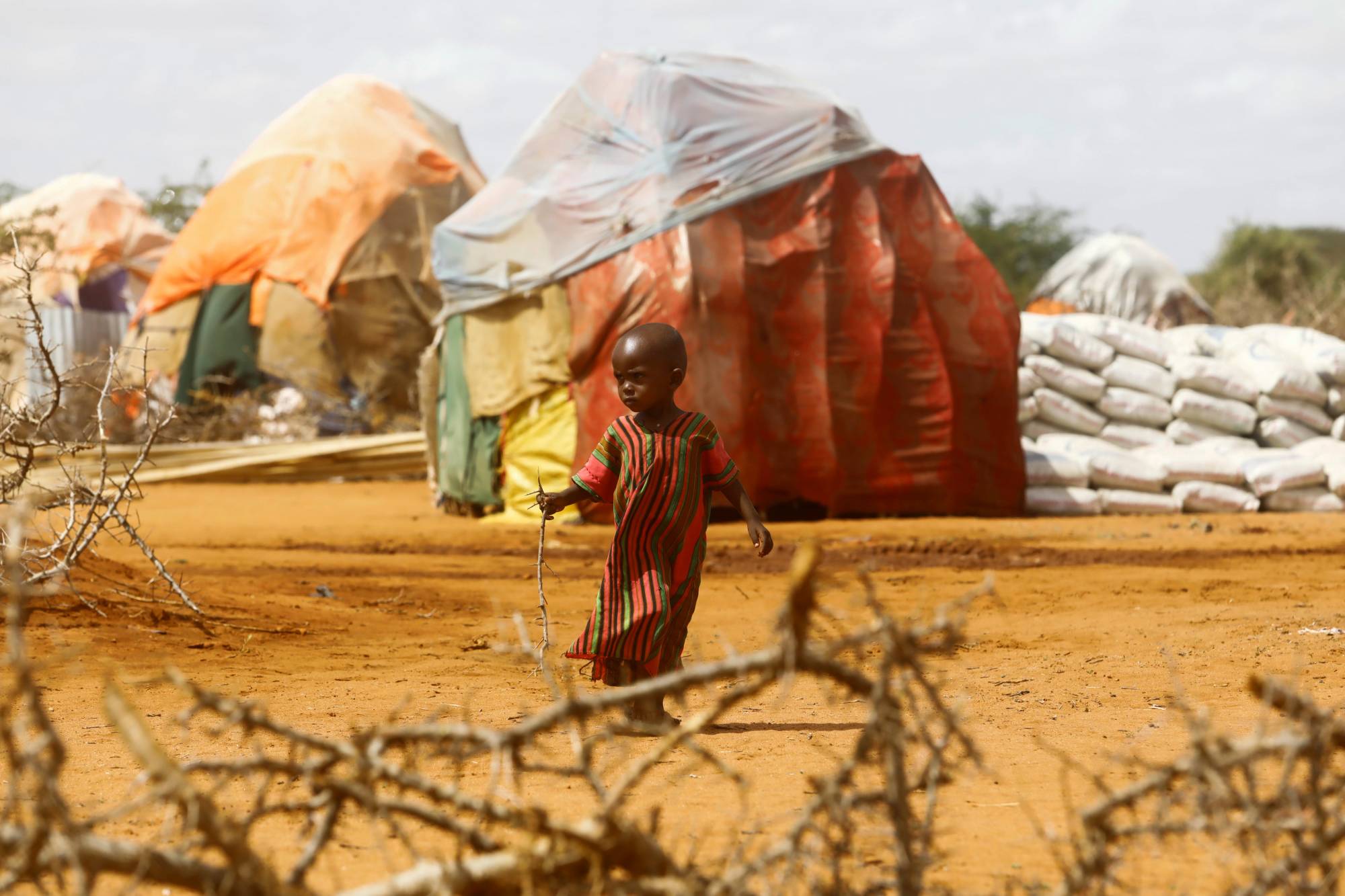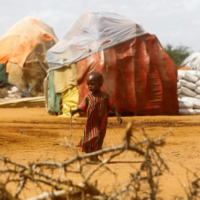The worsening effects of climate change, the socioeconomic fallout from the COVID-19 pandemic and the food security crises exacerbated by the Ukraine war are just some of the challenges facing African countries. To discuss solutions to these and other pressing issues, dozens of African leaders — as well as representatives of international organizations, donor countries, private companies and civil society — are expected to come together on Aug. 27 and 28 in Tunisia for the eighth iteration of the Tokyo International Conference on African Development.
Since TICAD I in 1993, these conferences have offered a platform for African leaders and development partners to discuss ways to promote economic development, fight poverty and foster peace, while agreeing on action plans.
Held every three years and convened alternately in Japan and Africa since 2016, these meetings are organized by the Japanese government in collaboration with the United Nations, the U.N. Development Program (UNDP), the African Union Commission and the World Bank.
More than 10,000 people participated in the TICAD 7 conference, including 42 African leaders, 52 development partner countries and 108 heads of international and regional organizations, along with representatives of civil society and the private sector.
Held in Yokohama in 2019, the conference saw Tokyo promote “quality infrastructure investment,” while African countries touted Japan’s strategic policy shift from government aid to encouraging private-sector investment, with the number of companies participating in the summit doubling since 2016.
Japan’s approach to development assistance focuses on Africans charting their own path forward in partnership with the international community, with observers saying that Tokyo seeks to differentiate its economic cooperation with the continent from that of China, which has long surpassed Japan as a business investor.
According to the Japan International Cooperation Agency, there are several unique points guiding Tokyo’s engagement with the continent. These include respect for Africa’s ownership, the promotion of self-help programs, a focus on people and human security, and the use of Japan’s experience and know-how.
Founded in 1974, JICA — which handles Japan’s official development assistance — has 31 offices across Africa and delivered ¥226 billion in the fiscal year beginning April 2020 in the form of loans, grants and technical assistance, as well as finance and investment cooperation. Its activities across Africa span a wide range of areas, including health care, education, industrial development, agriculture, infrastructure and environmental conservation, as well as the promotion of peace, democracy and good governance.
“We believe the lessons of Japanese modernization can be of help to African countries today, so that they can create their own development policies and strategies while keeping their cultures and traditions,” JICA Vice President Ryuichi Kato said in an interview with The Diplomat.
Japan’s approach is mainly geared toward accelerating inclusive economic growth through innovation and private-sector engagement, deepening regional integration, ensuring debt sustainability and supporting quality education and infrastructure projects.
Critical challenges
This year’s TICAD conference, which will focus on sustainability — both in terms of economic development and human resilience — comes as Tokyo updates its approach to the continent, which faces increasingly critical challenges such as the intensifying effects of climate change.
Even though Africa contributes less than 4% of global greenhouse gas emissions annually — compared with 78% by Group of 20 countries — the continent is on track to being among the hardest hit by global warming. Worsening the impact, Africa relies more heavily on climate-dependent economic sectors such as agriculture, and its capacity to cope and adapt is more limited.
“Climate-related and natural disasters, as well as environmental degradation, are contributing to the destruction of community assets and livelihoods, capital investments in infrastructure and agricultural outputs, while driving mass migration within and outside Africa,” said Eve Sabbagh, a spokesperson for the UNDP’s Regional Bureau for Africa.
“There is a critical need for a green transition across Africa, given the continent’s disproportionate vulnerability to climate change,” she said.
Without urgent action to build resilience, climate change and ecological decline will lead to increased poverty and displacement on the road to 2030 and will serve as barriers to the recovery from COVID-19, she added.
Worsening food insecurity
The situation has recently been made worse by the Russian military’s blockade of Ukraine’s Black Sea ports and the ripple effects of Western sanctions against Moscow, which have increased international food and fuel prices, leaving millions of Africans facing an “unprecedented food emergency” this year.
According to the U.N.’s World Food Program (WFP), prices have surged between 30% and 50% in many places — and even doubled in some markets — as the continent normally imports about a third of its wheat from Russia and Ukraine.
But even before Russia’s invasion of Ukraine in February, many parts of the continent were already facing food insecurity because of natural disasters, increased conflict and unproductive farming.
For instance, the WFP reported in April that the number of hungry people in the Sahel and West Africa had quadrupled over the past three years, reaching 41 million. Meanwhile, the worst drought in decades is threatening an estimated 15 million people in the Horn of Africa, with Kenya, Somalia and large parts of Ethiopia at risk of acute food insecurity, according to the International Organization for Migration.
Against this backdrop, the UNDP views the type of multilateral partnerships built and strengthened at conferences such as TICAD as “essential” to building resilience in African countries, especially by transforming Africa’s resource wealth and taking advantage of “blue carbon” markets — where coastal ecosystems are restored, earning “credits” for the carbon that is captured and stored as a result — and green financing mechanisms. Other critical areas include climate risk-sensitive investment, environmentally sustainable projects and sustainable energy investment.
“Japan, through the TICAD platform, has aligned its support to the development priorities of African countries, which has made it a unique forum, in that it is underpinned by a strong belief in African-led and -owned development,” Sabbagh said.
What can Japan do?
Speaking about the upcoming conference in Tunisia, JICA’s Kato said the focus will be on building resilience in Africa’s socioeconomic frameworks.
“We will do this by strengthening health care systems, realizing decent work opportunities, supporting startups and business innovation, promoting digitalization, facilitating regional trade and integration, combating climate change, increasing agricultural production to achieve food security, and more,” he told The Diplomat.
Japan has decades of experience in this field and has repeatedly shifted its priorities for Africa to respond to the development needs of the continent, which is moving away from being an aid recipient and gradually becoming the driving force behind its own development.
For example, Kato explained in his interview that the Coalition for Africa’s Rice Development, launched at TICAD IV in 2008, achieved a doubling of rice production in sub-Saharan Africa from 14 million tons a year to over 28 million tons a year.
JICA then launched the Africa Business Education Initiative and Corridor Development Approach at TICAD V in 2013, as well as the Africa Kaizen Initiative and Initiative for Food and Nutrition Security in Africa — better known as IFNA — in Kenya at TICAD VI in 2016. And in early 2020, JICA launched the Next Innovation with Japan initiative, also known as Ninja, which supports young African entrepreneurs and startups for business innovation and matches them with Japanese investors.
These efforts have resulted in numerous achievements. Between TICAD 7 and the end of March 2021 alone, JICA says it helped train 23,000 people in health care, 46,000 in the areas of law, police and security, and 260,000 in other industries and roles.
The organization, which aims to further expand its collaboration with African, Japanese and other partners, also says it provided ¥72.1 billion in financial support for infrastructure projects, and that it helped increase rice production to 32 million tons and provide quality education for 6 million children.
Flurry of projects
JICA has also been expanding its cooperation programs and initiatives to promote private-sector-led growth, with ex-participants of the ABE Initiative serving as a bridge between Japanese companies and African markets and partners.
The idea behind this approach — especially in recent years — has been that Japanese firms, big and small, have the potential to generate business activities in Africa that are conducive to the continent’s inclusive, resilient and sustainable development.
The partnerships cover a vast range of areas and tackle numerous development issues. For instance, in Ghana the staple meal — a traditional porridge of fermented corn — is insufficient in energy, proteins and micronutrients, causing infant malnutrition.
In response, Tokyo-based company Ajinomoto has been using its expertise and technologies in food and amino acids to develop food products that can contribute to improved nutrition for infants, start local production and create a business model to deliver these products to poor people.
Japanese companies have also been involved in numerous projects to improve access to water. For instance, due to the decline of groundwater levels caused by a lack of rain, Morocco is facing an increased cost of agricultural water and risking the depletion of its water resources. To tackle this issue, Tottori Resource Recycling has developed a technology designed to improve the water retention capacity of the soil and greatly decrease the amount of water required for irrigation by using porous materials made from glass waste.
In 2020, JICA provided approximately ¥2 billion in support of over 40 projects to mitigate the effects of climate change across 17 African countries. Examples of these include a geothermal power plant project in Kenya, which aims to develop energy in the Olkaria area, and the Gulf of El Zayt Wind Power Plant Project in Egypt.
Growing interest
According to a September 2021 survey conducted by the Japan External Trade Organization involving 335 Japan-related companies in 23 African countries, the percentage of companies expecting to expand their business operations increased by 6.8 points to 48.6%. On the other hand, more than 50% of the companies mentioned investment risks related to instability as well as the development and implementation of regulations.
Africa is at a critical juncture in its development as it seeks to reignite free trade and economic integration in a post-pandemic era. There are tough challenges ahead, especially with regards to climate change.
The determining factor will be how resilient, inclusive and sustainable its future development will be. In this regard, TICAD 8 can be a timely platform for the international community to work together with African leaders to find constructive solutions and map the way forward.




















With your current subscription plan you can comment on stories. However, before writing your first comment, please create a display name in the Profile section of your subscriber account page.